
Mercenary is a 3D action-adventure game written for the Atari 8-bit computers and published by Novagen Software in 1985. It was converted to the Commodore 64, ZX Spectrum, Amstrad CPC, Atari ST, Amiga, and Commodore 16/116/Plus/4. The game uses vector graphics renderings of vast, sparse environments and has various methods of completing the game. It was also released as Mercenary: Escape from Targ and Mercenary: A Flight Simulator Adventure.

Stunt Car Racer is a racing video game developed by Geoff Crammond. It was published in 1989 by MicroProse, under their MicroStyle and MicroPlay labels in the United Kingdom and in the United States, respectively. The game pits two racers on an elevated track on which they race in a head-to-head competition, with ramps they must correctly drive off as the main obstacle.
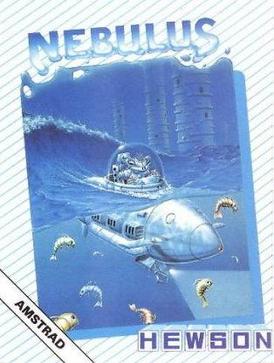
Nebulus is a platform game created by John M. Phillips and published by Hewson Consultants in the late 1980s for home computer systems. International releases and ports were known by various other names: Castelian, Kyorochan Land, Subline, and Tower Toppler.

Rick Dangerous 2 is a platform game developed by Core Design for the Amiga, Atari ST, Amstrad CPC, ZX Spectrum, Commodore 64, and MS-DOS. It was released in 1990 and published by Micro Style as a sequel to Rick Dangerous.

Kwik Snax is an arcade style maze video game play developed by the Oliver Twins and was published in 1990 by Codemasters for the Amstrad CPC, Spectrum, Commodore 64, MS-DOS, and Amiga. It was the fifth game in the Dizzy series and is considered a sequel to Fast Food.

RoboCop 2 is a platform shooter video game based on the 1990 film of the same name. The game was released for several platforms, including Amiga, Amstrad GX4000, Atari ST, Commodore 64, Game Boy, Nintendo Entertainment System, and ZX Spectrum. Ocean Software developed and published several versions, and Data East manufactured an arcade version.

Knightmare is a video game released by Activision in 1987 for ZX Spectrum, Amstrad CPC, Commodore 64, and Atari ST. It was written by Mev Dinc, J.P. Dean, E.M. Dean and Nick Cooke, and is based on the Anglia Television show Knightmare. Four years later, Mindscape released entirely different game based on the show, also called Knightmare, for the Atari ST and Amiga.
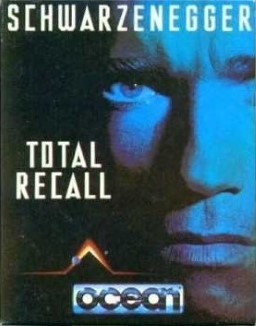
Total Recall is a 1990 platform game developed and published by Ocean Software that was released for the Commodore 64, Amiga, Amstrad CPC, ZX Spectrum, Atari ST, and Nintendo Entertainment System. Total Recall is based on the 1990 film of the same name.

Short Circuit is a video game based on the 1986 film of the same name. It was developed and published by British company Ocean Software, and was released in Europe in 1987, for Amstrad CPC, Commodore 64 (C64), and ZX Spectrum. It was published again in 1989 as a budget re-release.

Yogi's Great Escape is a platform game based on the 1987 movie of the same name. It was developed by British studio PAL Developments and published in 1990 by Hi-Tec Software as a budget game. It was released in Europe for Amiga, Amstrad CPC, Atari ST, Commodore 64, Atari 8-bit computers, and ZX Spectrum.

The Real Ghostbusters is a 1987 shoot 'em up arcade game developed and published by Data East. It is loosely based on Ghostbusters. In Japan, Data East released it as a non-Ghostbusters arcade game under the title Meikyuu Hunter G. In 1989, Activision published The Real Ghostbusters for Amiga, Amstrad CPC, Atari ST, Commodore 64, and ZX Spectrum.
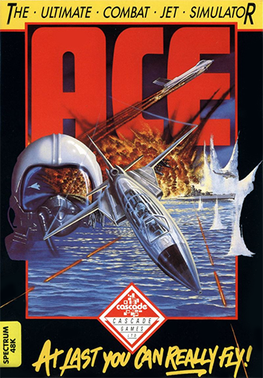
Ace is a combat flight simulator video game published for the Commodore 64, VIC-20, and Plus/4 in 1985 by Cascade Games. It was ported to the Amstrad CPC, Amstrad PCW, Amiga, and ZX Spectrum.
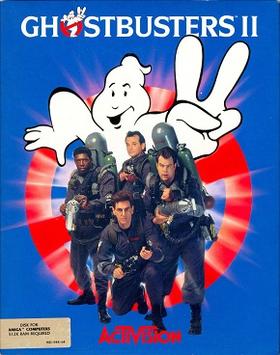
Ghostbusters II is a 1989 action game based on the film of the same name. It was published by Activision for various computer platforms. British studio Foursfield developed a version for Commodore 64, Amiga, Atari ST, Amstrad CPC and ZX Spectrum, which also got ported to the MSX by New Frontier. It features three levels based on scenes from the film. Dynamix developed a separate version for the DOS, also based on the film. The non-DOS versions were praised for the graphics and audio, but criticized for long loading times, disk swapping, and the final level. The DOS, Commodore 64 and Amiga versions were the only versions released in North America.
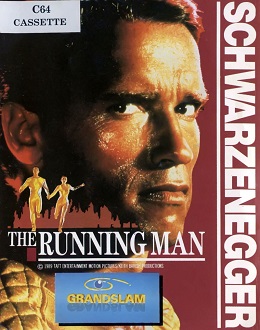
The Running Man is a 1989 beat 'em up video game based on the 1987 film of the same name. It was developed by Emerald Software and published by Grandslam Entertainments for Amiga, Amstrad CPC, Atari ST, Commodore 64, and ZX Spectrum.

Terminator 2: Judgment Day is a 1991 action video game developed by Dementia and published by Ocean Software. It is based on the 1991 film of the same name, and was released in Europe for Amiga, Amstrad CPC, Atari ST, Commodore 64, DOS, and ZX Spectrum. It is a sequel to The Terminator, itself based on the 1984 film of the same name. The game features several gameplay styles such as driving, fighting, and puzzle-solving.
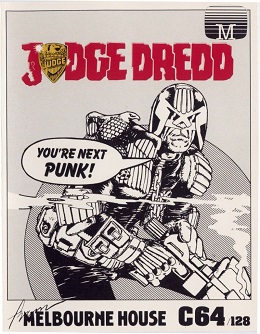
Judge Dredd is a platform shoot 'em up video game based on the character of the same name. It was developed by Beam Software and published by Melbourne House. It was released in Europe in 1986, for Commodore 64 and ZX Spectrum.
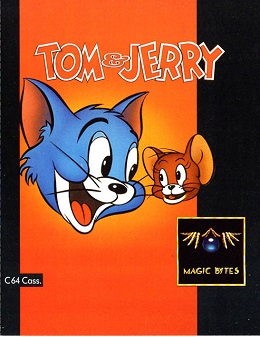
Tom & Jerry is a 1989 platform game developed and published by German company Magic Bytes. It is the first video game based on the cartoon of the same name, and was released in the United States and Europe, for Amiga, Atari ST, and Commodore 64 computers.
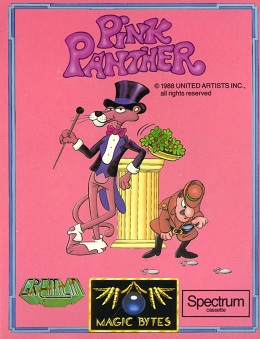
Pink Panther is a 1988 video game based on the character of the same name. It was developed by German company Magic Bytes and published by Gremlin Graphics. It was released in Europe for Amiga, Amstrad CPC, Atari ST, Commodore 64, and ZX Spectrum. Pink Panther was criticized for its control and difficulty, although the Amiga and Atari ST versions received praise for their graphics.

Red Heat is a beat 'em up video game based on the 1988 film of the same name. It was developed by British studio Special FX and published by Ocean Software. It was released in Europe in 1989, for Amiga, Amstrad CPC, Atari ST, Commodore 64 (C64), and ZX Spectrum.
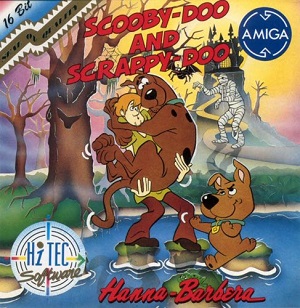
Scooby-Doo and Scrappy-Doo is a 1991 platform game developed by British studio PAL Developments and published by Hi-Tec. It is part of the Scooby-Doo franchise, and was released in Europe for Amiga, Amstrad CPC, Atari ST, Commodore 64, and ZX Spectrum. The game received praise for its graphics.




















